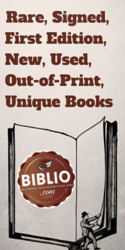The Importance of Nouns
At our Christmas party this past December one of our friends said if we should ever decide to put our house up for sale he’d pay us twenty percent more than the asking price with only one condition – we’d have to move out all our stuff in two weeks. I really can’t imagine there’s much chance of that happening – Jonathan or any of our friends know perfectly well we could never do it in two months. Down-sizing is a what I used to think people did when they bought new clothes after going on a diet.
Some real estate people would have us believing that once the kids leave home and fly off to distant parts, that it’s time to get rid of much of what we have and down-size to a two-car garage with attached living quarters, all on one floor, and conveniently located in a nearby “life-style” development they’d really love to show us. In real estate lingo I think that’s called a “two-fer” – as in one client, two commissions.
I read something, not so long ago, about the importance of continually connecting to at least some of the things we accumulate during our lives as just one of the ways to help maintain our mental abilities as we age. The people who investigate such matters are beginning to report that when older people remove themselves from familiar surroundings and most of what they’ve gathered and treasured over the years, mental decline begins or accelerates. People may scatter or die off, but places and things generally tend to stay put. Like it says on the gardener’s sweat-shirt that’s too clever by half – “Bloom where you’re planted”.
This is not to suggest that the Collyer brothers were necessarily brilliant mathematicians or art historians, but who knows maybe they were? If they died with all of their stuff, including their marbles, who’s to argue (?) – except for the cleaning crew who had to deal with it all.
We’d all probably agree that souvenirs are more than generally useless items sold in gift shops – they can be unusual stones picked up from a stream-bed or along the road , a shell or piece of drift-wood found on a beach, or anything loosely called collectible which can include books, pictures or interesting objects of any description.
Almost everything we’ve saved over the years, especially things we continue to use and enjoy, is in a sense a souvenir, especially when we remember where, how and why we came by them in the first place (I was going to look up the word in my French-English dictionary, but forgot where I put it). Cooking in old, indestructible Griswold cast-iron pots or skillets that were handed down or bought at a flea market, reading a book for the first time that we remember buying at the Rochester Book Fair in the early 80s, or collecting old postcards of the hometown most of us couldn’t wait to leave after graduation.
All of these things are touchstones or reminders of events in the past that may help us learn and remember now and in the future – I like to think it’s about keeping the mental pathways active and well-lubricated, so to speak, for as long as we can. In some ways we’re like people walking over a long bridge – if something or somebody took away most of the first part after we passed the middle section, we’d probably have a hard time getting across in one piece and might not enjoy the scenery as much.
But this sort of behavior does run the risk of getting out of hand. Some time back I wrote a piece called “Confessions of a Packrat” in which I described some of what we’ve accumulated and saved over the years. In trying to understand and explain the reasons, I admitted that as a child of parents who went through the Great Depression, I know it had a great deal to do with being taught that throwing away anything that could be of use to yourself or someone else was somehow ecologically and morally unsound.
These days we’ve toned it down a bit – although I continue to pick up hand tools from garage sales, country auctions or flea markets (mainly backup gardening tools to replace those that have become worn or broken through hard use) and Raquel collects wool fleeces that she spins and knits into sweaters and things she mostly gives to family and friends (she also has several spinning wheels and an assortment of drum and hand-carders). Both of us collect books on a variety of subjects, but are trying to keep things under control by continually weeding our collection and donating to friends or charity book sales.
At one period during our bookselling days and before we launched this magazine, I believe we had somewhere around thirty or forty thousand books, mostly shelved, in various locations around our village (at one point more than what the local college library had, or so I was told). This was at a time when college and university libraries were growing rapidly and we published a long series of single-subject catalogues intended for subject bibliographers and special collections departments. A lot of good solid material, not necessarily scarce or rare, but keeping up with it all kept us on our toes. Speed-reading, or at the very least skimming through a book and gleaning enough information to come up with a good annotation was very important and one of the benefits was that the work added thin layers of knowledge to my earlier undergraduate liberal education. I’d like to think that some of it stuck with me.
Nowadays we have far fewer books – I would guess about four or five thousand or so – but with more time spent reading what we like during the evening hours and almost no time spent cataloguing (except for a few unusual items listed for sale on this magazine’s website), our books have become a sort of Gold’s Gym or Planet Fitness for the mind, but without the monthly dues or sweaty locker rooms.
*
Towards the end of February we’ll be headed to Jekyll Island and when we return along about the middle of March, it’ll be time to start flower and vegetable annuals in preparation for setting them out in cold frames. For those who don’t know what a cold frame is, think of it as a mini-orangery or tiny unheated greenhouse about a foot to eighteen inches tall and as long and wide as you can handle without falling into it. They can be as simple as a perimeter knocked together from used lumber, topped by old window sashes and heated on cold nights by an incandescent light bulb at the end of an outdoor extension cord. Or they can be as complicated and expensive as you want. I start a lot of my flowering annuals this way and also our tomatoes, peppers, eggplants and the like, all of which are vulnerable to late frosts and benefit from a gradual transition to the gardens.
Up to this point we’ve had relatively little snow, compared to the more than 200 inches we get most years, and have been able to do some winter pruning and other gardening chores, which should give us a running start come spring. Also, the daffodils are beginning to show about a month early and, if I’m lucky, I’ll even have time to deal with some of the dead ash we cut down last fall – in colder weather it splits a lot easier.
Letter from Archer City.
“Letter from Archer City” is based on an idea originally proposed to me many years ago by Paul Minet, an idea that turned into “Letter from England” that we’ve published for most of the life of this magazine. Larry McMurtry, like Paul Minet, has been an antiquarian bookseller for nearly all of his adult life. Paul’s Baggins Books was and is one of the largest bookshops in England, and Booked Up, located in Archer City with nearly a half-million volumes, is one of the largest bookshops in the United States – making the town where The Last Picture Show was filmed probably the only real book town in America.
Mr. McMurtry, who’s been tracking down and gathering old books for more than 50 years, is a well-known writer, a powerful storyteller, and knows a lot of people in the book trade. Although, like Paul Minet, he has handled his share of rare and unusual books, I’ve long suspected that one of his main interests has been to get good books, at affordable prices, into the hands of as many readers as possible – something that Paul Minet always enjoyed doing. His first column is in the way of a brief introduction and we look forward to more.
Paul Minet
Paul Minet, who wrote for this magazine for many years, died at home the evening of February 6th, less than 18 hours ago as this is being written. His wife Sheila and a few close friends were by his side. There will be more to say in our May/June issue.

























